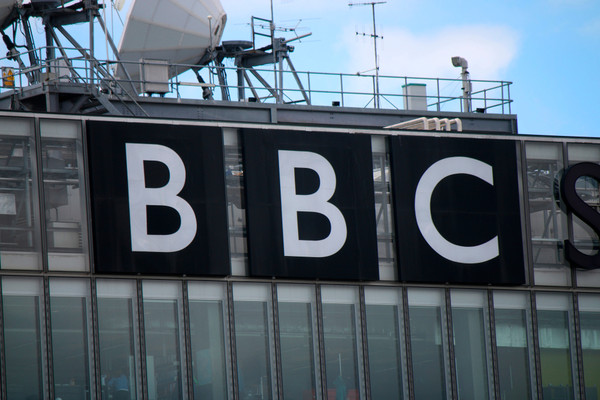Campaign Against Antisemitism dismissed the apology, saying the “The rot has been festering for years” at the broadcasting service.
By Batya Jerenberg, World Israel News
The BBC has apologized for ignoring antisemitic content and factual errors about Israel in its Arab-language department, veteran Jewish newspaper and website The Jewish Chronicle (The JC) reported Thursday, in a statement its critics say is not nearly enough to correct an unethical, longstanding policy in its service in general.
In the statement, a spokesperson for the British government-funded broadcaster said, “We apologise for the unacceptable delay and will ensure formal responses are issued as soon as possible.”
The apology came a year and a half after 26 specific complaints were sent in to the service by Camera, a media watchdog which scrutinizes Arabic language media, during Israel’s Operation Guardian of the Walls.
A Camera spokesperson said that only seven of its critiques “received a proper, timely response and resolution.” The average wait-time was four months.
“The BBC’s complaint system is unable to meet its own standards when it comes to content in Arabic about Israel and Jews,” the spokesperson said.
The BBC’s rules state that complaints should be addressed within ten working days when possible. Although none of Camera’s complaints were rejected, the service sent no response to 14 of them. It corrected three of their articles in line with the critiques without publicly acknowledging their errors.
One mistake, regarding holy sites in Jerusalem, was acknowledged a full year later, but the error is still in the online version of the article, the JC reported.
Campaign Against Antisemitism dismissed the apology, saying it felt “forced.”
The Arabic station has 36 million listeners, making it a very influential voice in the Arab world. Jewish media in the UK have reported many times over years of monitoring about how the department’s reporters take extremist views instead of giving objective facts, with one regular Islamist commentator, Abdel Bari Atwan, openly happy over terrorist attacks against Israel, with no backlash from their employer.
Last month, The JC launched an online petition demanding a parliamentary inquiry into BBC coverage of Jews and Israel. It came on the heels of a letter the paper sent to politicians and public figures, Jewish and non-Jewish alike, asking that Atwan be taken off the air and that the BBC be forced to correct its bias against Israel.
In the BBC’s response, which took over a month to arrive, it defended its employee, saying that keeping Atwan was “in the public’s interest.”
“The rot has been festering for years and now needs to be drawn into the light of parliamentary scrutiny,” the spokesperson added.
The BBC’s regular, English service has also been panned for years for reports that have antisemitic or anti-Israel content. The most prominent recent case occurred last December, when a group of men hurled insults and beat on a bus carrying Jewish youths to a Hanukka party in London, with the report stating that one of the children had made a racial slur first.
This was proven to be untrue, yet the BBC has yet to admit its error even after repeated requests by the Jewish community, which was outraged over the clearly antisemitic bias of the reporter. Government monitor of the media Oxfam is still investigating this specific incident.
The BBC actually commissioned a report in 2004 to investigate allegations of bias on the Israeli-Palestinian conflict, but never released it even though it should have done so as a publicly-funded service. A few morsels that leaked out of the 20,000-word report that examined hundreds of hours of broadcasts seemed to confirm that there was bias, which could be the reason the report was locked away.
The broadcaster had received – and rejected – 400 Freedom of Information requests to publish the findings, until in 2012 the British High Court sided with the BBC, closing the door on the issue.
